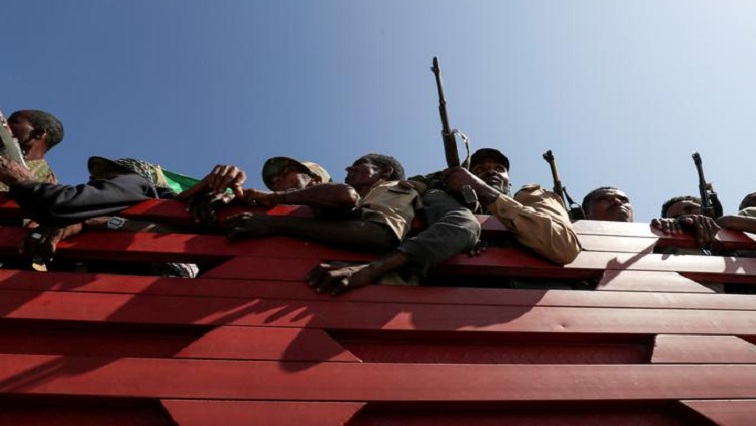Ethiopia’s Prime Minister shifted focus away from war on Wednesday, opening a cross-border highway to Kenya at the opposite end of his country, while the United Nations voiced alarm at continuing fighting in the northern Tigray region.
Abiy Ahmed cut the ribbon on a mega-highway linking south Ethiopia with Kenya’s Indian Ocean port of Mombasa, alongside Kenyan counterpart President Uhuru Kenyatta, reflecting Ethiopian aspirations to become a regional powerhouse.
“Just like the infrastructure, we should work on peace and security,” he said at the border town of Moyale, refraining from mentioning Tigray. “Peace is a foundation for everything we are aspiring to transform (in) the life our people.”
War since November 4 between Ethiopia’s federal forces and the Tigray People’s Liberation Front (TPLF) is thought to have killed thousands and displaced more than 950 000 people, according to UN estimates, some 50 000 of them into Sudan.
The United Nations agreed a deal with the government last week for safe access to Tigray, home to more than 5 million people, of whom 600 000 needed food aid even before the war.
But the shooting at, and then detention of, a UN security team on its way to a refugee camp by Ethiopian federal forces on Sunday highlighted difficulties implementing that deal. The government said the UN team had defied two checkpoints.
UN Secretary-General Antonio Guterres acknowledged the problems and said Ethiopia and the United Nations had now agreed on joint missions to assess humanitarian needs.
He said the aim was “to make sure that there is full access to the whole of the territory and full capacity to start a humanitarian operation based on real needs, and without any kind of discrimination.”
The conflict may also hurt an economy that had been soaring, albeit from a low base, becoming the world’s fastest growing in 2017, driven by agricultural exports and heavy infrastructure spending it hoped would drive a manufacturing boom.
Ethiopia was for years trying to position itself as an emerging industrial hub that would draw its 115 million population – the second largest in Africa – off subsistence farms and into factories.
For more than a decade, the government poured billions of dollars into hydro-electric dams, industrial parks, railways and highways. Then when Abiy took power in 2018, he began opening up sectors like telecoms to private investment.
Those aspirations are now at risk. Instability that began even before the Tigray conflict – due to ethnic clashes and other problems – may scare off investors already skittish about the impact of COVID-19 and rapidly-rising Ethiopian government debt. Foreign textiles firms worry about existing investments.
“Fighting continues between federal forces and the TPLF, and affiliated militias on both sides,” she told reporters, citing clashes near the towns of Mekelle, Sherero, Axum and Abiy Addi.
A government spokesman did not immediately respond to a request for comment. TPLF leaders could not be reached.
Guterres said the United Nations had information about “sporadic fighting in different areas of the country,” but also that in the past few days there had been “an increase of security and control.” He said he could not “fully confirm” the information.
Abiy declared victory after capturing the regional capital Mekelle, but TPLF leaders say their combat continues from surrounding hills.
About 1 000 federal soldiers held by the TPLF, some of whom were abducted on November 3, the day before the war erupted, were freed in an operation by the federal army and police, state-controlled media said late on Wednesday, without elaborating.
Both sides’ claims are difficult to check, as most communications in Tigray are down and access is severely restricted. Journalists need a permit to travel outside the capital Addis Ababa.
The United States believes Eritrean soldiers have crossed into Ethiopia to help Abiy’s government, despite denials from both nations, a US government source and five regional diplomats told Reuters.
Abiy and Eritrea’s President Isaias Afwerki signed a peace pact ending two decades of hostilities in 2018 and now regard the TPLF as a mutual foe.
“We have no proof of the presence of Eritrean troops inside Ethiopia,” said Guterres. “I confronted the Prime Minister with that question, and he guaranteed to me that they have not entered Tigrayan territory.”

